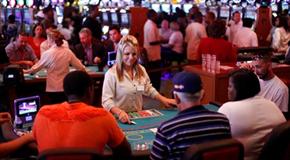Features
Meet The New Boss

A group of national lawmakers are preparing bills to legalize casino gambling in Japan ahead of the 2020 Summer Olympics, which will take place in the Japanese capital, and Tokyo was considered the most likely city to host integrated resorts that will include casinos, mainly because of its wealthier inhabitants.
However, in February, a new Tokyo governor, Yoichi Masuzoe, was elected. Since taking office, he has increasingly voiced opposition to the proposal. At the end of August, in fact, he outlined that opposition on an interview program broadcast on Fuji TV, one of the companies that has already invested money in plans to develop the Tokyo waterfront for IRs.
The governor’s main gripe is that casino gambling will have a negative influence on young people. He also objects to the conventional wisdom that casinos will revitalize Tokyo’s economy, if not Japan’s as a whole. In July, the structure of the Tokyo Metropolitan Government was reorganized, a move that many in the media interpreted as a means of pushing the casino issue back.
Moreover, a new group of lawyers was formed to lobby against casinos, saying they would only exacerbate the problem of gambling addiction and promote the influence of “anti-social elements” related to organized crime. Though other regions and cities in Japan are anxious to open casinos, the withdrawal of Tokyo from the discussion could have a negative effect on the passage of the law and, especially, the interest of foreign investors, most of whom so far have taken it for granted that Tokyo would be the first to open casinos.
Osaka, Japan’s second-biggest city, is still keen to attract casinos and related resorts, and has a plan to develop the man-made island of Yumeshima just for that purpose. The city government has already set aside 8 million yen ($76,000) for a survey. There are also three cities on the northern island of Hokkaido yearning for casinos and the prefecture of Nagasaki on the southern island of Kyushu, where authorities want to expand the Dutch-themed Huis Ten Bos amusement park into a casino resort.
The main argument in favor of casinos is the belief that it will greatly increase foreign tourism, though some experts challenge this point, saying that Chinese gamblers, the highest rollers in Asia, are satisfied with Macau and wouldn’t necessarily come to Japan to gamble. As for Japanese gamblers, though there seems to be a large potential pool, there are rumors that in order for the government to pass a casino law it would have to compromise with opposition lawmakers by prohibiting Japanese nationals from entering gaming venues, mirroring the situation in South Korea.
If that happened, there would be very little incentive for foreign investors to work with Japanese resort developers, as their main attraction is Japan’s wealthier class, who live in or around Tokyo.